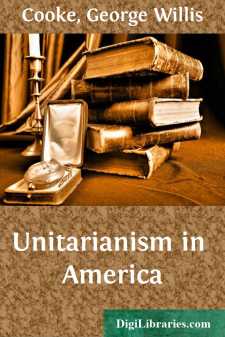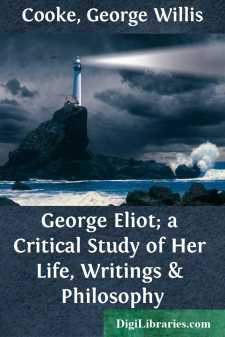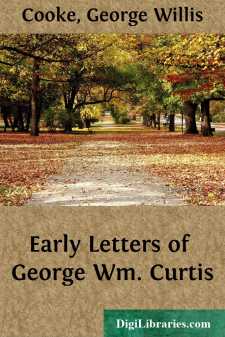Categories
- Antiques & Collectibles 13
- Architecture 36
- Art 48
- Bibles 22
- Biography & Autobiography 813
- Body, Mind & Spirit 142
- Business & Economics 28
- Children's Books 15
- Children's Fiction 12
- Computers 4
- Cooking 94
- Crafts & Hobbies 4
- Drama 346
- Education 46
- Family & Relationships 57
- Fiction 11829
- Games 19
- Gardening 17
- Health & Fitness 34
- History 1377
- House & Home 1
- Humor 147
- Juvenile Fiction 1873
- Juvenile Nonfiction 202
- Language Arts & Disciplines 88
- Law 16
- Literary Collections 686
- Literary Criticism 179
- Mathematics 13
- Medical 41
- Music 40
- Nature 179
- Non-Classifiable 1768
- Performing Arts 7
- Periodicals 1453
- Philosophy 64
- Photography 2
- Poetry 896
- Political Science 203
- Psychology 42
- Reference 154
- Religion 513
- Science 126
- Self-Help 84
- Social Science 81
- Sports & Recreation 34
- Study Aids 3
- Technology & Engineering 59
- Transportation 23
- Travel 463
- True Crime 29
George Willis Cooke
George Willis Cooke (1848–1923) was an American Unitarian minister, essayist, and literary critic known for his works on American Transcendentalism and women's rights. He is best known for writing "Ralph Waldo Emerson: His Life, Writings, and Philosophy" (1881), which is one of the earliest comprehensive studies of Emerson. Cooke also authored "A Guide-Book to the Poetic and Dramatic Works of Robert Browning" (1891), highlighting his interest in Victorian literature. Additionally, he was an advocate for women's rights and wrote the important work "Women of the American Revolution" (1901).
Author's Books:
Sort by:
PREFACE. The aim I have had in view in writing this book has been to give a history of the origin of Unitarianism in the United States, how it has organized itself, and what it has accomplished. It seemed desirable to deal more fully than has been done hitherto with the obscure beginnings of the Unitarian movement in New England; but limits of space have made it impossible to treat this phase of the...
more...
I. EARLY LIFE. The poet and the novelist write largely out of personal experience, and must give expression to the effects of their own history. What they have seen and felt, gives shape and tone to what they write; that which is nearest their own hearts is poured forth in their books. To ignore these influences is to overlook a better part of what they write, and is often to lose the explanation of...
more...
EARLY LIFE AT BROOK FARM AND CONCORD George William Curtis was born in Providence, February 24, 1824. From the age of six to eleven he was in the school of C.W. Greene at Jamaica Plain, and then, until he was fifteen, attended school in Providence. His brother Burrill, two years older, was his inseparable companion, and they were strongly attached to each other. About 1835 Curtis came under the...
more...




